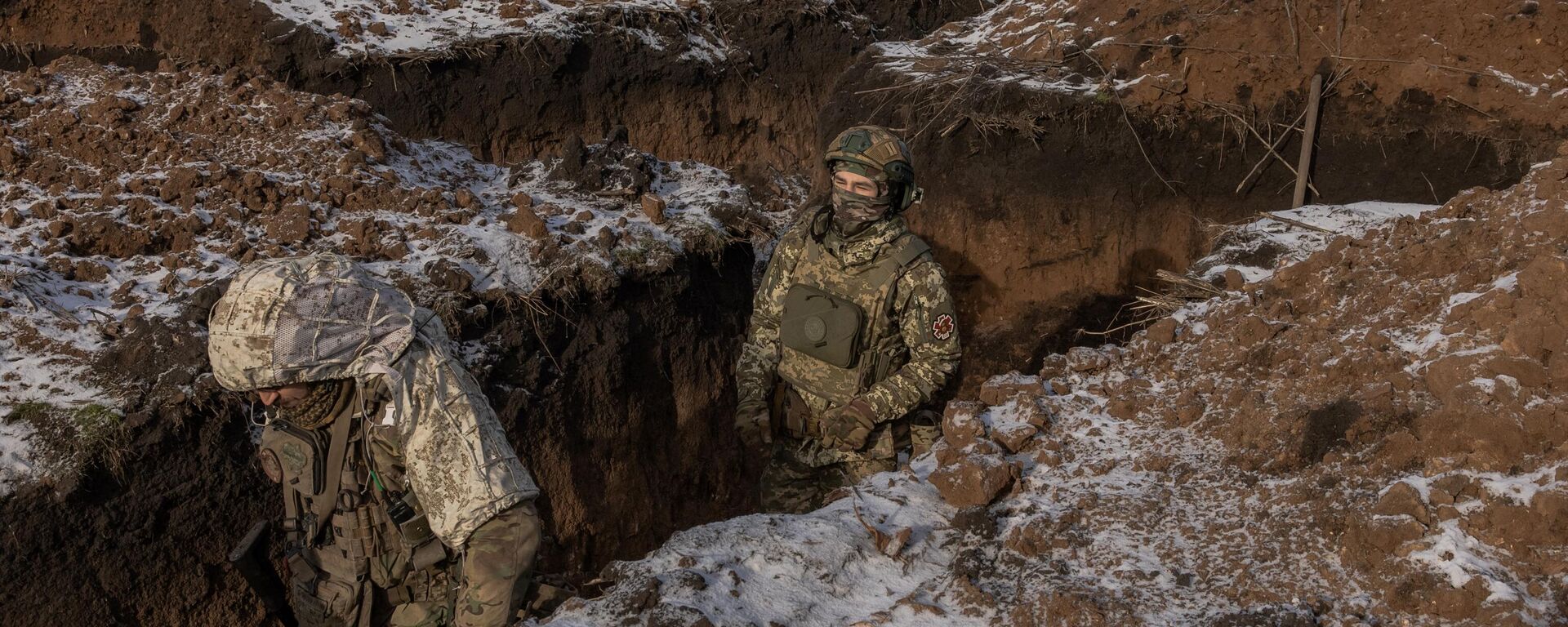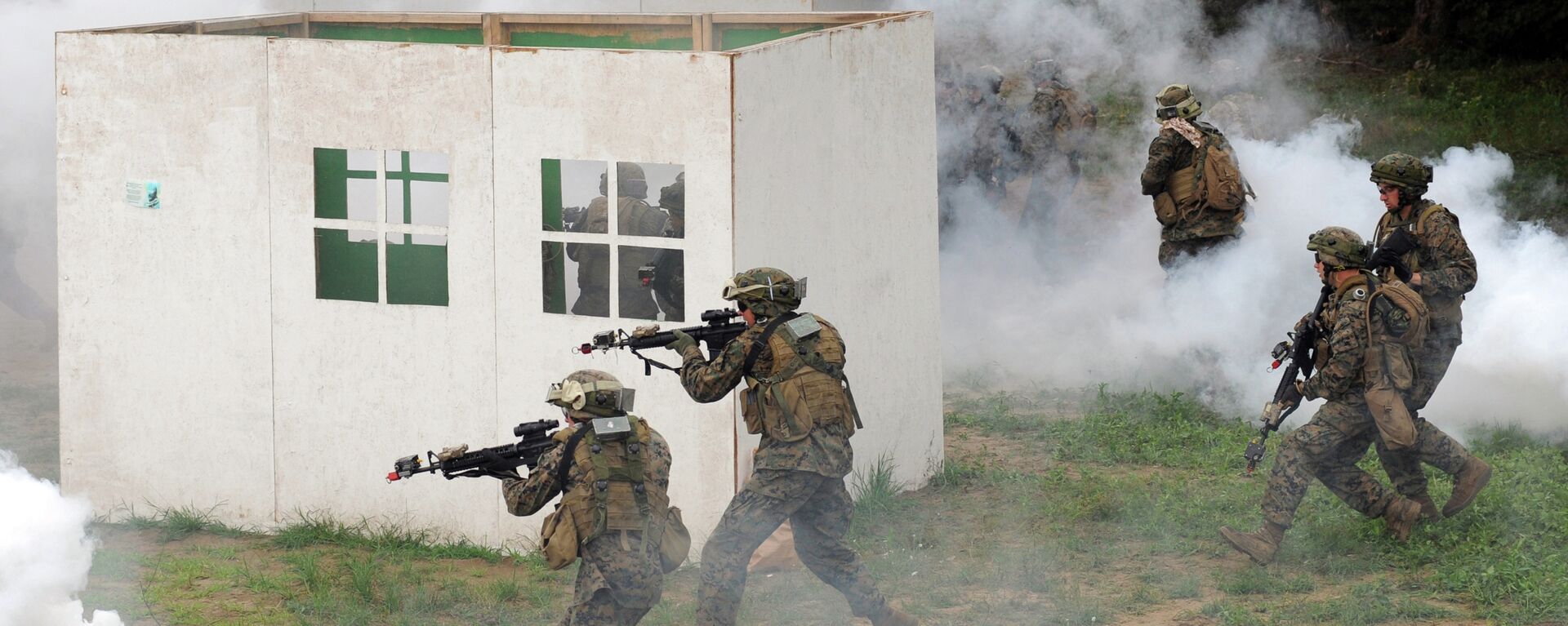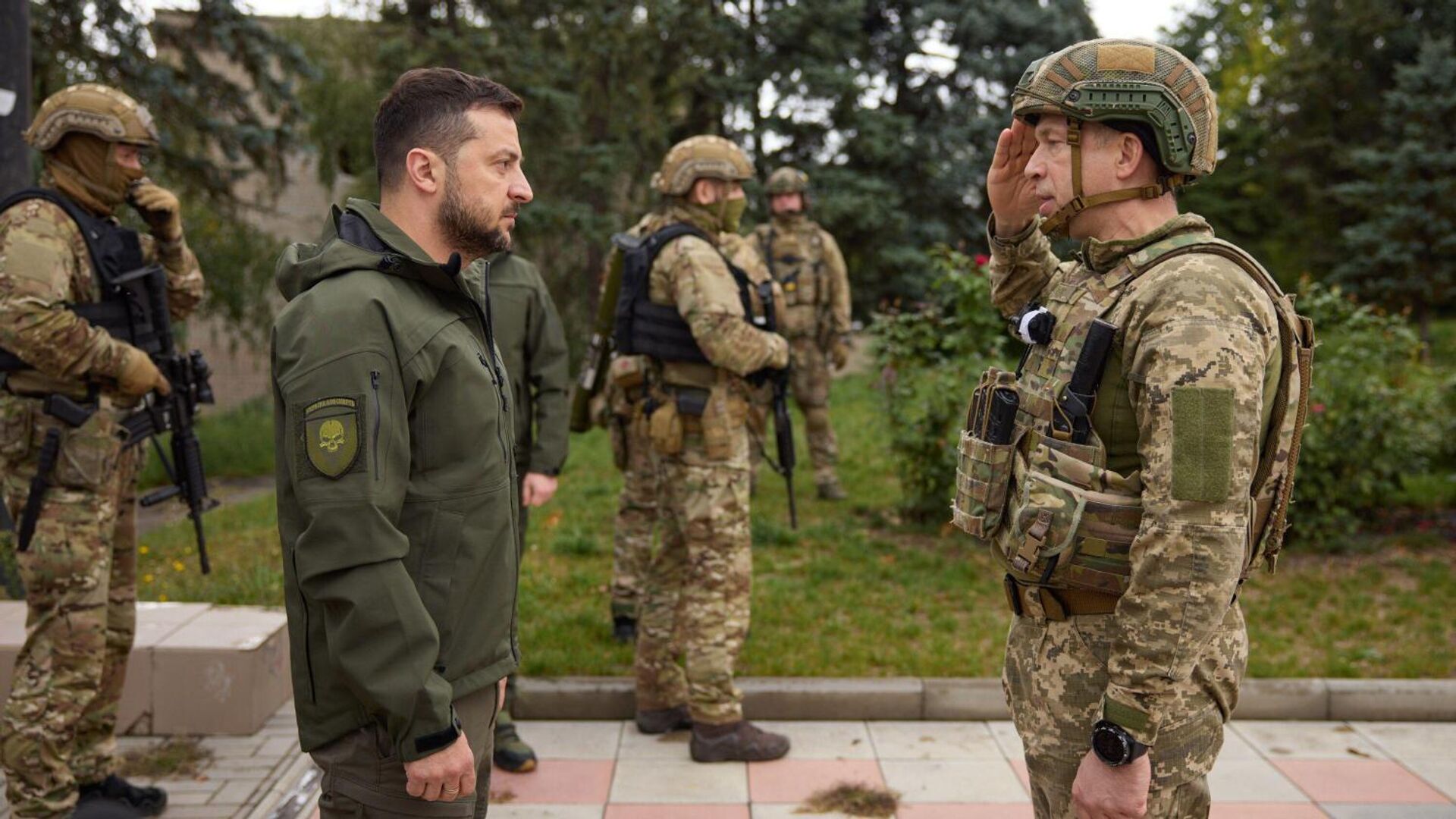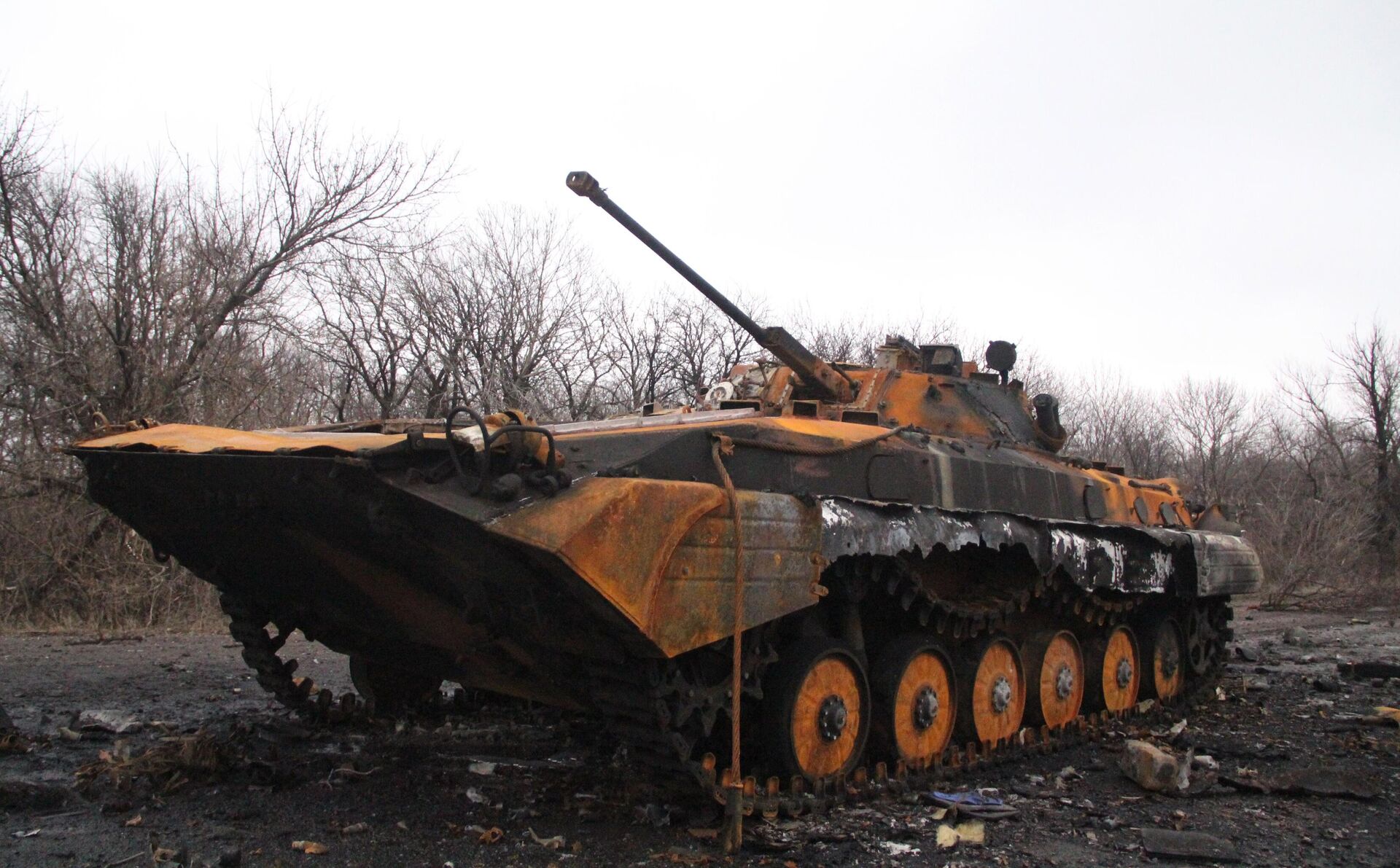https://sputnikglobe.com/20240209/syrsky-picked-due-to-absolute-loyalty-to-zelensky-not-qualities-as-commander-1116701161.html
Syrsky Picked Due to ‘Absolute Loyalty’ to Zelensky, Not Qualities as Commander
Syrsky Picked Due to ‘Absolute Loyalty’ to Zelensky, Not Qualities as Commander
Sputnik International
Volodymyr Zelensky executed a surprise shakeup of the Ukrainian military’s command on Thursday, replacing General Valery Zaluzhny with Colonel General Oleksandr Syrsky as commander-in-chief. What can the Ukrainian and Russian militaries expect from the new top general? Sputnik asked a Russian military observer.
2024-02-09T16:52+0000
2024-02-09T16:52+0000
2024-02-09T18:43+0000
volodymyr zelensky
valery zaluzhny
ukraine
kiev
debaltsevo
nato
world
https://cdn1.img.sputnikglobe.com/img/07e8/02/09/1116701004_0:0:1500:844_1920x0_80_0_0_8e3fa804e02be77442e0bdf3e538dc65.jpg
The media arm of Kiev’s NATO sponsors has expressed mixed feelings about Ukraine’s new commander-in-chief, with some outlets questioning whether Col. Gen. Syrsky will be able to make any difference on the battlefield, others fearing he may destabilize the situation in a “crucial new phase in the war,” and others still concerned about his propensity for throwing away the lives of masses of troops to reach objectives of little consequence.Hailed by Zelensky’s office for his ‘heroic’ defense of Kiev and prowess during the 2022 Kharkov offensive (which a little digging reveals actually had little to do with his capabilities as a commander), Syrsky is reportedly facing “misgivings” by “some Western officials and analysts who advice Washington” over his “ability to resist political interference in operational matters.”Over several weeks in January and February of 2015, heavy clashes between the Ukrainian military and Donbass militias in the Donetsk People’s Republic city of Debaltsevo culminated in the encirclement, destruction and capture of thousands of Ukrainian troops and the disorganization of Ukraine’s entire military operation in the Donbass, largely freezing the conflict in place for nearly seven years. Syrsky was one of the Ukrainian commanders during the battle.Public sentiments expressed by Ukrainian commanders and ordinary soldiers about Syrsky confirm Kostikin’s point, with the commander bestowed the nickname “Butcher” and “General 200” (a reference to ‘Cargo 200’, a code for the transportation of fallen soldiers in zinc coffins) by troops for his readiness to send wave after wave of men to their deaths for objectives of questionable strategic value.“General Syrsky’s leadership is bankrupt, his presence or orders coming from his name are demoralizing, and he undermines trust in the command in general,” one Ukrainian reserve officer wrote several months before Syrsky’s appointment as commander in chief. “His relentless pursuit of tactical gains constantly depletes our valuable human resources, resulting in tactical advances such as capturing tree lines or small villages, with no operational goals in mind. This approach creates a never-ending cycle of fruitless assaults that drain personnel,” the officer added, urging Syrsky to be dismissed immediately.Kostikin expects Syrsky’s command to include fresh attempts to launch offensives against areas held by Russian forces, as well as an uptick in terror attacks against civilians.
https://sputnikglobe.com/20240209/top-ukrainian-generals-replacement-may-not-help-kiev-win--british-media-1116698528.html
https://sputnikglobe.com/20240209/us-military-involvement-in-ukraine-could-trigger-open-war-with-russia-1116691481.html
ukraine
kiev
debaltsevo
Sputnik International
feedback@sputniknews.com
+74956456601
MIA „Rossiya Segodnya“
2024
News
en_EN
Sputnik International
feedback@sputniknews.com
+74956456601
MIA „Rossiya Segodnya“
Sputnik International
feedback@sputniknews.com
+74956456601
MIA „Rossiya Segodnya“
why did zelensky replace his top commander, who is general oleksandr syrsky, ukraine, russia
why did zelensky replace his top commander, who is general oleksandr syrsky, ukraine, russia
Syrsky Picked Due to ‘Absolute Loyalty’ to Zelensky, Not Qualities as Commander
16:52 GMT 09.02.2024 (Updated: 18:43 GMT 09.02.2024) Volodymyr Zelensky executed a shakeup of the Ukrainian military’s command on Thursday, replacing General Valery Zaluzhny with Colonel General Oleksandr Syrsky as commander-in-chief. What can the Ukrainian and Russian militaries expect from the new top general? Sputnik asked a Russian military observer.
The media arm of Kiev’s NATO sponsors has expressed mixed feelings about Ukraine’s new commander-in-chief, with some outlets
questioning whether Col. Gen. Syrsky will be able to make any difference on the battlefield, others
fearing he may destabilize the situation in a “crucial new phase in the war,” and others still
concerned about his propensity for throwing away the lives of masses of troops to reach objectives of little consequence.
Hailed by Zelensky’s office for his ‘heroic’ defense of Kiev and prowess during the 2022 Kharkov offensive (which
a little digging reveals actually had little to do with his capabilities as a commander), Syrsky is reportedly facing “misgivings” by “some Western officials and analysts who advice Washington” over his “ability to resist political interference in operational matters.”

9 February 2024, 15:27 GMT
“So far, Syrsky has proven himself only as a ‘cauldron general’, responsible, in the minds of Ukrainian officers, for the defeat at Debaltsevo in 2015,” Nikolai Kostikin, an expert from the Military-Political Analysis Bureau think tank, told Sputnik.
Over several weeks in January and February of 2015,
heavy clashes between the Ukrainian military and Donbass militias in the Donetsk People’s Republic city of Debaltsevo culminated in the encirclement, destruction and capture of thousands of Ukrainian troops and the disorganization of Ukraine’s entire military operation in the Donbass, largely freezing the conflict in place for nearly seven years. Syrsky was one of the Ukrainian commanders during the battle.
Syrsky’s only major redeeming feature, in the minds of Ukraine’s political leadership at least, is his “absolute loyalty to the current authorities,” according to Kostikin. “He is prepared to continue the policy of ‘meat grinder assaults’, and it is easier for him to do this, since his reputation allows for it,” the analyst said.
Public sentiments expressed by Ukrainian commanders and ordinary soldiers about Syrsky confirm Kostikin’s point, with the commander bestowed the nickname “Butcher” and “General 200” (a reference to ‘Cargo 200’, a code for the transportation of fallen soldiers in zinc coffins) by troops for his readiness to send wave after wave of men to their deaths for objectives of questionable strategic value.
“General Syrsky’s leadership is bankrupt, his presence or orders coming from his name are demoralizing, and he undermines trust in the command in general,” one Ukrainian reserve officer
wrote several months before Syrsky’s appointment as commander in chief. “His relentless pursuit of tactical gains constantly depletes our valuable human resources, resulting in tactical advances such as capturing tree lines or small villages, with no operational goals in mind. This approach creates a never-ending cycle of fruitless assaults that drain personnel,” the officer added, urging Syrsky to be dismissed immediately.
Kostikin expects Syrsky’s command to include fresh attempts to launch offensives against areas held by Russian forces, as well as an uptick in terror attacks against civilians.
“Ukraine’s Armed Forces now have prospects for the continued mass slaughter of their personnel. And it is not Ukrainians who command Ukrainian troops. The policy of meat assaults will continue until the front collapses like dominos,” Kostikin said.

9 February 2024, 12:24 GMT





